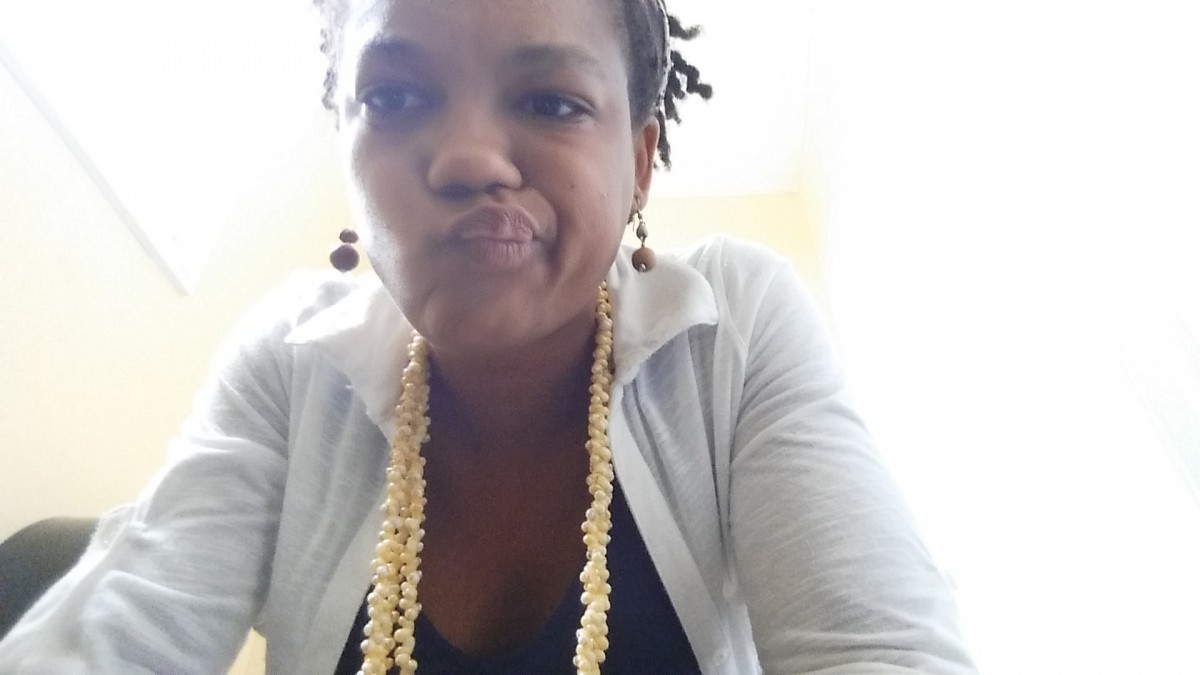Please don’t offer me anything to drink: My daily struggle with liquid poison
I was at a party on the weekend standing by myself. A guy approached me trying to make conversation. He looked at the cup in my hand and asked, “What are you drinking?” Presumably he wanted to buy me a refill. I said: I’m not drinking anything; I’m sucking on ice. I was actually crunching on ice, but what I said was the more flirtatious way to describe it. He didn’t realise that was a thing. I lied and said I was trying to stay sober for the night.
In reality I was trying to manage my fluid intake; it’s something I have to do constantly because as a dialysis patient, fluid is a poison: not just alcohol, but any fluid, including water. It is seriously one of the most frustrating parts about being on dialysis. If you overload on fluid, it can cause serious medical complications, like not being able to breathe or cardiac arrest. Case in point, last night; I couldn’t sleep, not because I was restless. I was actually having difficulty breathing.
I checked my phone and it was 2am; I was still awake dreaming about the work I immersed myself in before retiring to bed. It’s a hazard of being overloaded with fluid; your lungs become oversaturated making it difficult to breathe, especially when lying down, hence the insomnia. I took three pillows into the living room and propped myself upright on the couch hoping to find a comfortable position to breathe and therefore fall asleep.
Kidneys regulate the fluid in your body. When you have healthy kidneys, they draw excess fluid out of your body by producing urine. The urine also acts as a solute for the toxins filtered by the kidney. Usually, the more fluids you drink the more you pee, in terms of volume and frequency. When your kidneys don’t work, you can actually stop peeing altogether.
Indeed, peeing is another one of those things I took for granted before I started dialysis. It has been quite frightening to watch my volume of pee dwindle from month to month, not knowing if one day I’ll lose all need for the phrase: “I need to pee”. Usually you can tell a dialysis patient is overloaded with fluid because their body swells up, particularly in the legs, ankles and feet. It can be very uncomfortable.
In the past few months I have been on more scales than probably my entire life. Every time I go to dialysis the first thing I have to do is weigh myself to see how much excess fluid my body has retained. The dialysis machine is programmed to suck off the excess amount. It is a maddening process of weight watching that takes place every day. After my treatments, I have to go back on the scale to make sure I’ve dropped back down to my dry weight.
When your kidneys work you don’t have to think about any of this. Whatever pounds you put on in fluids on a daily basis you simply pee out the excess. But imagine if you couldn’t pee.
There is such a thing as putting on too much fluid. If you accumulate fluid faster than the machine can take it off, that is a recipe for life threatening complications. It is unsafe to remove too much fluid in one dialysis session, because it could strain your heart and cause cardiac arrest. Veteran patients on the unit have countless stories about how this person or the next person died having been irresponsible about managing their fluid intake. This is why I talk about the risk to dialysis patients of drowning in an internal pool of their own urine.
So every day I have to manage how much fluid I intake and balance it against how much urine my kidneys are still generating. It causes the simple act of drinking a glass of water to feel like a transgression. In fact, I often feel like an addict jonesing for a fix because my body gets so dehydrated. But every time I think about horsing back a glass of water or sipping a cup of tea, I have to first do a mental check and consider how much fluid I’ve taken in so far. The same goes for drinking a cup of soup or a bowl of cereal. The weight watching can feel pretty hellish at times.
I’ve always loved to crunch ice (a sign of anemia), but now, ice is really my best friend. It quenches my thirst while minimizing my fluid intake. So when you see me turn down your offer for something to drink, now you know it’s not because I am not thirsty. It’s because I am terrified of drowning in my own urine. It’s because I never want a repeat of my nightmare experience in San Diego.
— PS —
I put on 10 pounds on the weekend, the most I’ve put on so far. Taking it all off yesterday was a struggle; had the worse cramping pains, which happens sometimes if you go below your dry weight or if you try to take off too much weight too quickly. The latter option pained me bad yesterday. As if being a woman wasn’t bad enough; now I have to live with period cramps and dialysis cramps. Ugh.
